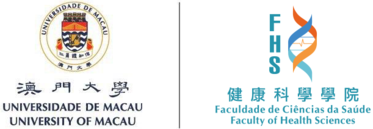
2021 / 2022學年哲學博士(生物醫藥)課程現正招生
| 1. 哲學博士學位(生物醫藥)課程簡介 |
|---|
博士課程旨在讓學生深入了解生物醫學科學領域上的知識和為他們提供全方位專業培訓。學生在教授領導下獨立進行生物醫學科學範疇的專題研究項目和撰寫論文,研究領域涵蓋癌症精準醫學、幹細胞與發育、衰老、神經及代謝紊亂、生物成像、數據科學、藥物開發、神經精神醫學、結構生物學及轉化醫學,一般修讀期為四年。學生於第一學年修讀生物醫學方法學、批判性科學閱讀,寫作和分析、高級細胞分子生物學、研究倫理等學科。在第二學年通過博士資格考試和開題報告評審後,學生須完成撰寫畢業論文並成功通過考試答辯才能取得博士學位。
| 2. 研究課題 |
|---|
| 導師名稱 | 研究主題 | 詳細資料 |
|---|---|---|
| 鄧初夏教授 | (1) Oncogenes and tumor suppressor genes (2) Stem cells, cancer metastasis and drug development | |
| 葛偉教授 | (1) Genetic analysis of growth and reproduction in the zebrafish model (2) Impacts of environmental endocrine-disrupting chemicals (EDCs) on reproduction and public health (3) Zebrafish as a model for aging, human diseases and drug discover | |
| 沈漢明教授 | (1) Autophagy: regulatory mechanisms and biological functions in cancer (2) Mitophagy: novel regulatory mechanisms (3) Cancer metabolism: targeting glucose metabolism in lung cancer | |
| 陳國凱教授 | (1) Metabolic regulation in stem cell maintenance and differentiation (2) Novel mechanisms involved in cardiomyocyte differentiation and maturation (3) Skin cell differentiation for regenerative medicine (4) Endoderm differentiation for disease model | PhD-adm_GKC |
| 張仲榮教授 | (1) Mechanism of gene regulation in cancer (2) Single cell analysis | |
| 羅茜教授 | (1) Circulating tumor cells and cancer metastasis (2) Drug resistant and anti-cancer drug discovery | |
| 王山鳴教授 | Cancer genetic, hereditery breast cancer, genomics, bioinformatics | |
| 黃值富教授 | Bioinformatics and computational biology of aging related neurodegenerative diseases | |
| 項玉濤教授 | (1) Psychiatric epidemiology (2) Health services research in psychiatry (3) Evidence-based medicine in psychiatry (4) COVID-19 related studies in psychiatry (5) Cognition and psychiatric disorders | |
| 徐仁和教授 | Mesenchymal stem cells: the development, heterogeneity, and assimilation | PhD-adm_RHX |
| 張曉華教授 | (1) Digital medical research and data analysis (2) Data mining for biomedical research (3) Development of analytic software for high-throughput biomedical data | PhD-adm_DZ |
| 鄭文華教授 | Foxo and neuronal differentiation or new drugs development like artemisinin and metformin | |
| 周昶行教授 | Structure and function of epigenetic regulators | PhD-adm_WC |
| 狄利俊教授 | (1) Remodeling of transcriptional program in cancer development by both endogenous and exogenous factors via regulating CtBP status (2) Molecular mechanism of cancer metastasis (3) Investigating the molecular mechanisms and identifying the potential therapeutic targets of obesity and related disease | |
| 郭珩輝教授 | (1) Antibody / venom-based peptide targeted therapy for anti-cancer prototype drug discovery & development (2) Biomarkers identification and validation based on the hallmarks of cancer | |
| 李剛教授 | (1) Epigenetic mechanisms of tumorigenesis (2) Signal transduction pathways in epigenetics | PhD-adm_GL |
| 劉子銘教授 | (1) In vivo microscopy and spectroscopy of tumor microenvironment (2) Develop serum fluoroscope for the diagnosis of organ function | |
| 潘全威教授 | (1) Proteomics/protein/biomarker-based research in precision medicine (2) Bioinformatics-based research in precision medicine | |
| 沈仲燮教授 | Exploiting synthetic lethality for cancer target discovery | |
| 譚建業教授 | (1) Development of small molecule inhibitors targeting cancer metabolism or Alzheimer’s disease (2) Combined use of metabolic inhibitors in lung cancer models (3) Chemical optimizations of small molecule inhibitors | |
| 黃冠豪教授 | Transcription regulation of fungal metabolism and infection. | |
| 謝瑞瑜教授 | (1) Epigenetic regulation underlying cell fate determination (2) Molecular switches in endodermal lineage specification (3) Molecular mechanisms regulating proliferation and differentiation in the pancreas | |
| 徐曉玲教授 | BRCA1 associated breast cancer and cancer metastasis | |
| 袁振教授 | (1) Neuroscience and neuroimaging (2) Biomedical optics (3) Optical molecular imaging and cancer nanomedicine | |
| 張宣軍教授 | (1) Fluorescent and photoacoustic probes for bioimaging/sensing (2) Nanoreactors for biomedical applications | |
| 曾華鑫教授 | (1) How cells polarize during cell migration, with a focus on the cytoskeleton and nuclear envelope proteins (2) How aging affects cell polarization and how cell polarization contributes to aging defects (3) Characterize candidate aging factors and decipher their modes of action | |
| 代雲路教授 | (1) Cancer nanomedicine (2) Molecular imaging (3) Drug delivery | |
| 李子安教授 | (1) Small RNA-dendrimer in modulating the receptors in renin-angiotensin system to suppress cancer development and metastasis (2) Proteomic and metabolic analyses of EPAC signaling in ovarian cancer | |
| 邵寧一教授 | Cardiomyocytes differentiation across species | |
| 王雅凡教授 | Mechanism of gene regulation by NFkappaB and co-factors | |
| 張紅杰教授 | (1) System-intrinsic sphingolipid homeostatic network regulation (2) Molecular mechanisms of tubular organ morphogenesis | |
| 趙琦教授 | (1) Nanomedicine and target drug delivery (2) Directed evolution of synthetic proteins and molecules (3) Neutralizing antibodies against infections | |
| 鄭軍教授 | (1) Type VI secretion system in pathogenic bacteria (2) Development next generation antibiotics (3) Bacterial persistence |
| 3. 報名須知 |
|---|
學生可先瀏覽健康科學院網頁,查閱招收博士研究生之指導教授名單及其研究主題,有需要可聯繫相關指導教授了解詳情。有興趣報讀的學生在選定指導教授後,必須於報名期內登入澳門大學網上報名系統提交網上申請表格。入選的申請人須要進行面試,有關安排及詳情以電郵通知。學生可透過以下其中一種報讀方式提交申請:
| 推免招生 | : | 適合持有具推免資格的內地院校學士學位學生報讀 |
| 普通招生 | : | 適合持有相關碩士學位學生報讀 |
| 直接讀博 | : | 適合持有相關學士學位學生報讀 |
| 英語能力要求 |
|---|
註:托福及雅思考試之成績於考試日起兩年內有效。如有特殊情況,入學申請必須取得所屬院長及研究生院之批准。 |
| 4. 2021/2022學年報讀申請日期 |
|---|
| 推免招生 | : | 2020年6月15日至8月13日(第一期)
2020年8月14日至10月15日(第二期) |
| 普通招生/直接讀博 | : | 2020年8月3日至10月29日(第一期)
2020年10月30日至2021年2月26日(第二期) |
| 5. 博士生資助 |
|---|
| 澳大濠江博士生獎學金 | : | 獲頒此獎學金之博士研究生獲每月澳門元20,000的津貼,及每學年最多澳門元10,000的會議或研究活動交通津貼,為期最長四年。 |
| 博士生助學金 | : | 獲得博士生助學金之學生可獲每月澳門元12,500元(最高可達澳門元14,000)的津貼。 |
以上獎學金及助學金之相關指引,請參閱澳門大學「博士生獎學金及助學金指引」。
| 6. 住宿 |
|---|
「研究生宿舍」由學生事務部學生資源處管理,主要為研究生提供校內住宿及生活服務。所有宿舍房間均提供基本的傢俱及冷氣設備,但不包括日常衛生用品及床上用品(如枕頭、棉被、被單、床罩等)。
| 聯絡方式 |
|---|
電話: (853) 8822 4296 / 8822 4966
| 點擊以下鏈接以獲取更多招生訊息: |
|---|

